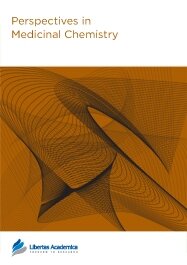

Publication Date: 10 Feb 2008
Journal: Perspectives in Medicinal Chemistry
Citation: Perspectives in Medicinal Chemistry 2008:2 1-9

Seven transmembrane (7TM) G-protein-coupled receptor (GPCR) families are important targets for drug discovery, and specific antagonists for GPCR can accelerate research in the field of medicinal chemistry. The chemokine receptor CXCR4 is a GPCR that possesses a unique ligand CXCL12/stromal cell-derived factor-1 (SDF-1). The interaction between CXCL12 and CXCR4 is essential for the migration of progenitor cells during embryonic development of the cardiovascular, hemopoietic and central nervous systems, and also involved in several intractable disease processes, including HIV infection, cancer cell metastasis, progression of acute and chronic leukemias, rheumatoid arthritis and pulmonary fibrosis.
Thus, CXCR4 may be an important therapeutic target in all of these diseases, and various CXCR4 antagonists have been proposed as potential drugs. Fourteen-mer peptides, T140 and its analogs, and downsized cyclic pentapeptides have been developed by us as potent CXCR4 antagonists. This article describes the development of a number of specific CXCR4 antagonists in our laboratory, including downsizing.
PDF (334.99 KB PDF FORMAT)
RIS citation (ENDNOTE, REFERENCE MANAGER, PROCITE, REFWORKS)
BibTex citation (BIBDESK, LATEX)
XML
PMC HTML

My experience publishing in Perspectives in Medicinal Chemistry was very positive. The submission process was very quick and easy. I was extremely impressed by the efficiency of the editorial staff and reviewers.
Facebook Google+ Twitter
Pinterest Tumblr YouTube